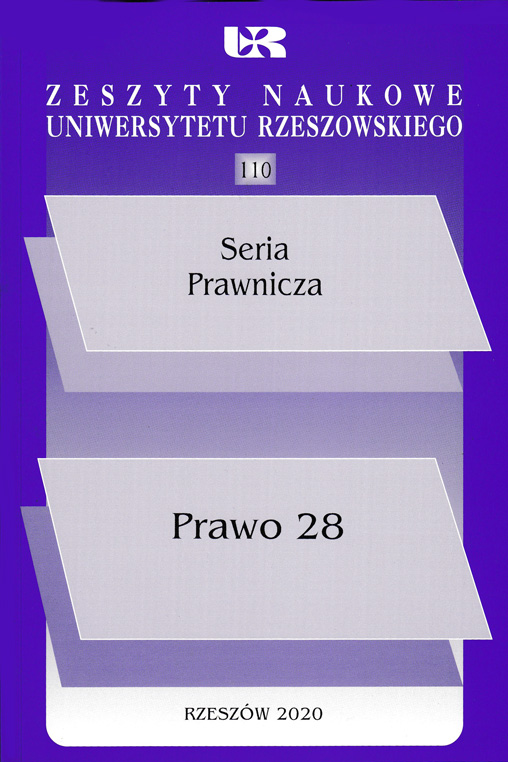Legal protection of children’s privacy and freedom on the internet
DOI:
https://doi.org/10.15584/znurprawo.2020.28.20Keywords:
human rights, children’s rights, right to privacy, sexting, grooming, cyberbulling, sextortion, sharenting, parental trolling, right to be forgotten, social mediaAbstract
Children are active internet users. They sometimes uncover their private and intimate spheres, exposing themselves to threats arising from the anonymity of potential perpetrators in the virtual world. Parents often share information about their children online, doing so without their knowledge and consent. Parental behaviour, called sharenting or parental trolling, as was mentioned in this paper, can amount to prohibited acts or can violate personal rights of children.The main purpose of this article is therefore to characterize the most common negative phenomena interfering with the privacy and freedom of minors (including sexting, grooming, cyberbulling, sharenting, parental trolling), as well as to identify appropriate legal measures that could effectively protect the interests of the injured child. The article cites relevant court rulings and provisions of the Polish Constitution of 1997, the Criminal Code, the Code of Criminal Procedure, the Civil Code, the Family and Guardianship Code, as well as international and EU law that guarantee effective protection of the two spheres that are fundamental for child development: privacy and freedom.
Downloads
Downloads
Published
How to Cite
Issue
Section
License
Copyright (c) 2020 Acta Iuridica Resoviensia

This work is licensed under a Creative Commons Attribution-NonCommercial-NoDerivatives 4.0 International License.

